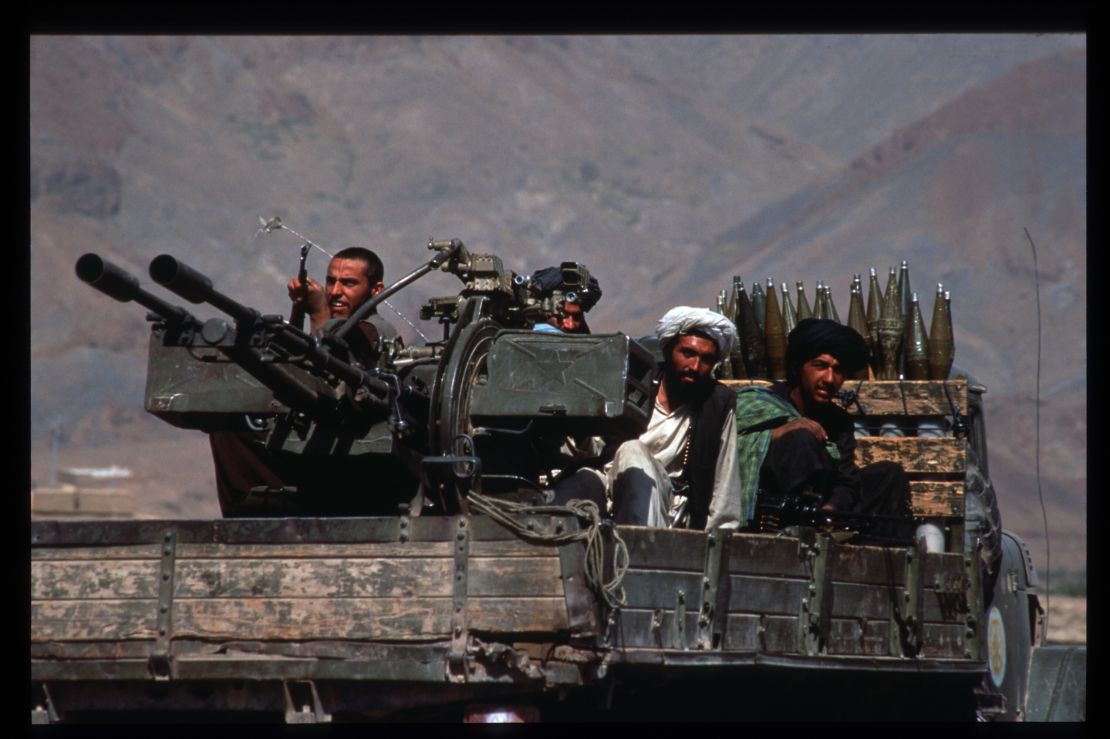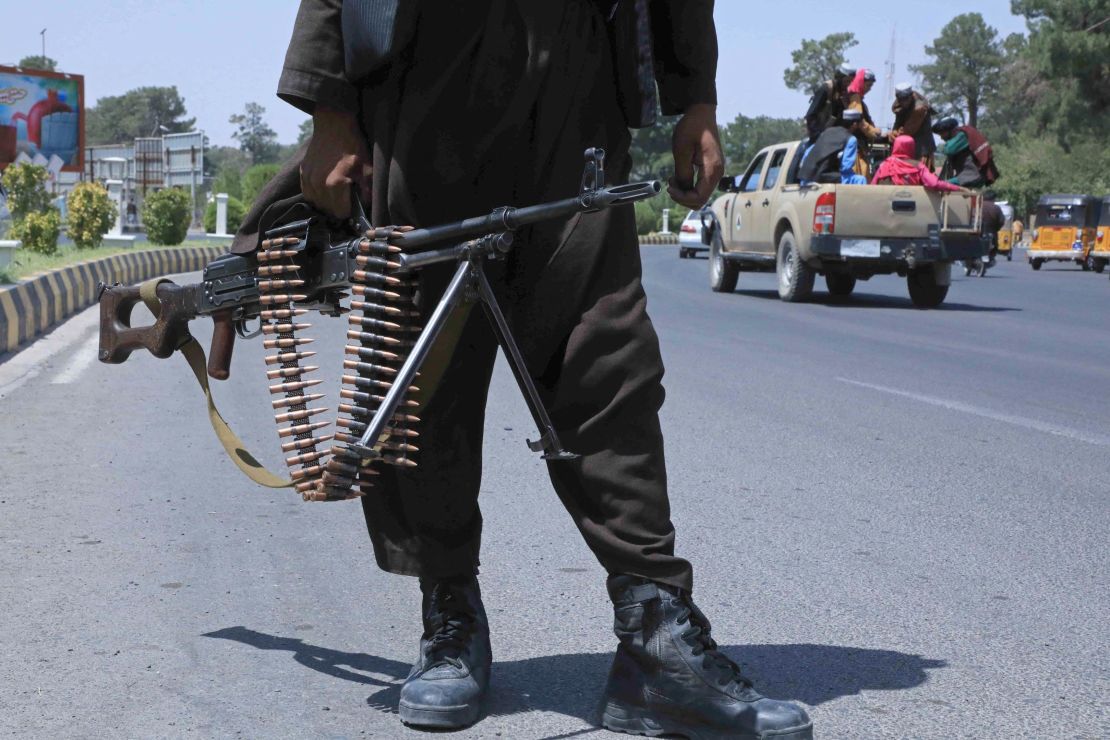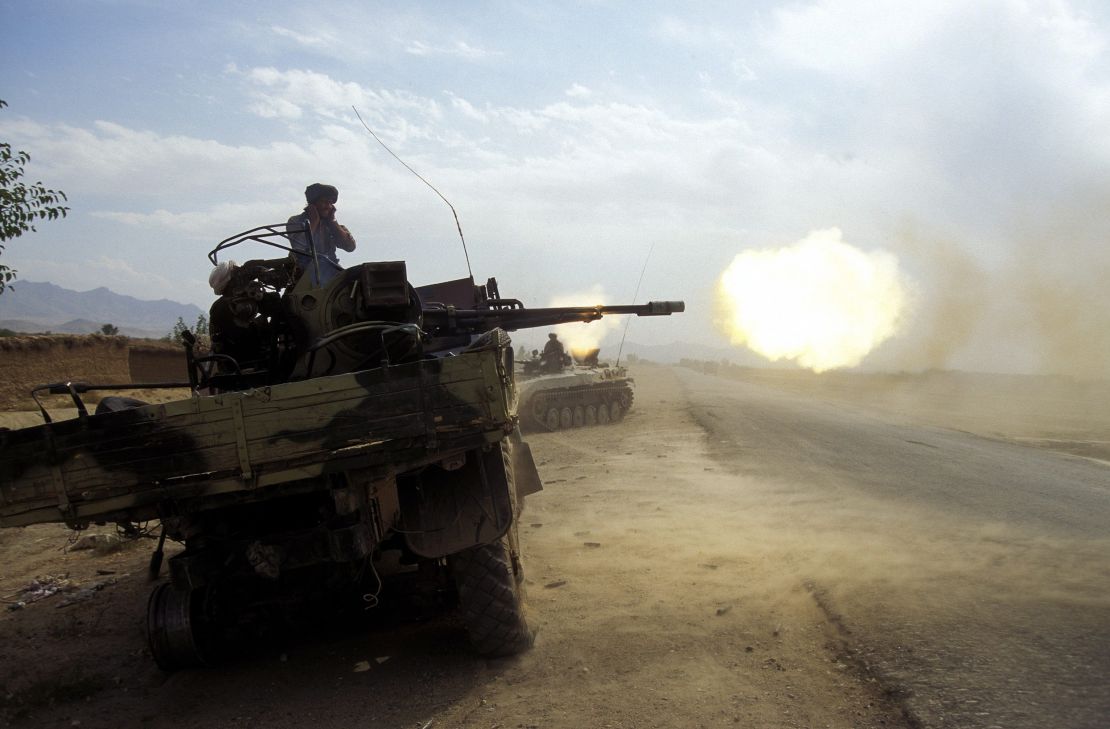The Taliban are the most unlikely of populists: brutal, myopic, the epitome of intolerance.
During five years in power until 2001, they banished women to their homes, banned music and most sport and imposed pitiless punishments on offenders. Adulterers were stoned in public; thieves had their hands amputated. Criminals were hanged for all to see.
Anything that didn’t fit their austere interpretation of Sharia was a target. They blew up the centuries-old Buddhas of Bamiyan, because they saw art that depicted the human form as an affront to God.
The Taliban came from a rural, deeply conservative setting – where their perception of religious purity and pious cultural traditions outweighed anything the modern world could offer: education, technology, discourse, the very idea of choice.
That was Taliban 1.0. How Taliban 2.0 will rule, two decades later, is far from clear – but there are a few straws in the wind. And they suggest the Taliban see little need to change.
They believe their success was God-given. Anas Haqqani, a member of Afghanistan’s most powerful family, told CNN that the Taliban “succeeded against 52 [countries]. It is not due to the worldly plan; it is because of the blessing of the faith.”
It followed that running the country would have but one inspiration. Khalil Haqqani – Anas’ uncle and a minister in the interim government – told a tribal summit in Kabul: “The aim was to create a pure Islamic government in Afghanistan, a government which is centered on justice and whose laws are divine. It will be based on one book, that of God and his prophet. That book is the holy Quran.”

The Taliban also see themselves as the vanguard of a national uprising in which Afghans threw off an alien culture imposed by foreigners. Anas Haqqani told CNN that the West “must not try to impose its culture and thoughts/beliefs on Afghans.” A chilling message for the many Afghans who valued the freedoms of the last 20 years.
The Taliban truly believe they defeated America – and that’s enormously empowering for their ideology. Haqqani compared the Taliban to George Washington, telling CNN he had “liberate[d] his homeland; he had defeated the British; he had gained independence from them. Here our elders are heroes for their nation … they have liberated their land; they have defended their religion and honor.”

Claiming popular roots
The Taliban’s spokesman said on August 15 as the group moved into Kabul that they might have surprised the world but not themselves “because we have roots among the people.”
In their southern heartlands and among small farmers, this is true. In the cities, and especially Kabul, less so. For all the corruption and nepotism of US-backed governments in Afghanistan, the health, wealth and education of Afghans improved by almost every metric in the 20 years since the Taliban were last in power. A vibrant independent media expressed a wide range of views; private universities flourished. A whole generation of Afghans tasted freedom.

As they surged from one province to another, the Taliban floated the possibility of a more tolerant reincarnation. The word “inclusive” tripped from their spokesmen’s lips; they let most soldiers go home rather than kill them. They promised amnesty for all adversaries.
The day the Taliban swept into Kabul, Suhail Shaheen, now the Taliban’s proposed envoy to the United Nations, assured CNN that girls would be educated up to university age.
And in the days after they ousted the previousgovernment, there was a big show of talking to former President Hamid Karzai and former Chief Executive Abdullah Abdullah. There were tribal gatherings in Kabul.
The reality has looked very different. The talks with Karzai and Abdullah evaporated. Their personal security remains tenuous. The caretaker government was stocked with veteran hardliners. There were no women in the government, nor in any public position; the Ministry for Women became the Ministry for the Protection of Virtue.
Very quickly protests were suppressed – and outlawed unless cleared by the Ministry of Interior. Afghanistan’s sportswomen made for the exits, by the dozen.
The Taliban offered instead the promise of security – in answer to the insecurity they had themselves created. Their latest publication is entitled: “Security and Stability Prevail Throughout Afghanistan.”
As Anas Haqqani asked rhetorically of the years of civil war: “Was it better that 200 people were getting killed every day?”

Murders – and kidnappings
After four kidnappers were killed in Herat, their bodies were hanged from cranes as an example to others. The bodies of other kidnappers were dumped in a square in Mazar-i-Sharif. One Taliban ideologue has defended amputation as punishment.
This is justified in the name of social peace. “Now peace has come – what people of the world wanted,” said Haqqani. “100% peace has come, there is security, thieves disappeared, not ceasefire but the war ended.”
The thieves may be disappearing, but ISIS is evidently not. IS Khorasan - which sees the Taliban as an apostate regime - has carried out attacks in Jalalabad, Kabul and Kunduz since the Taliban came to power - with the aim of showing that the Taliban can’t provide security and is ‘soft’ on minorities such as the Shia. IS Khorasan has no such qualms, as last Friday’s attack on a Shia mosque in Kunduz shows. The Taliban’s reputation for bringing peace and security will depend on their ability to cripple IS - Khorasan, a group that has defied intense efforts to destroy it over the last five years.
They have also promised an end to corruption, claiming the US had “handed over the reins of power to the great thieves and corruptors, who bullied and levied royalties on sellers and farmers.”
As for the bright promises of August, there has been some “recalibration.” Taliban spokesman Zabiullah Mujahid told CNN: “We have not decided about women’s affairs or rights yet, but we are discussing.” Different transport and teaching arrangements were necessary, he said.
Simply put, their worldview is diametrically opposite to those of western democracies.
Anas Haqqani argued that the freedom that women have elsewhere is not real freedom, telling CNN: “Women are our mother, our sister and our daughter. The respect this nation has for women – no one in the world has that. Look – in the West you have forced them to be servants.”

So complete was the Taliban’s military victory that they have little incentive to compromise, nor bargain with Afghanistan’s warlords. They have moved quickly to snuff out dissent, whether from social activists, rebels in the Panjshir valley or Salafists who practice Islam differently from the Taliban.
But the group is not a monolith. The lengthy internal debate over the formation of a government exposed disagreements, while festering tensions between pragmatic political leaders and doctrinaire military commanders are being won by hard-line militarists.
That in itself may limit the leadership’s room for maneuver on women’s rights, elections and media freedom, even if they wanted to make a moderate gesture. In the past, some Taliban have defected to even more militant groups – and in the mountains of eastern Afghanistan ISIS is waiting for the chance to recruit the disaffected if the Taliban tone down their fundamentalism.
There is every chance that the Taliban elite in Kabul will make emollient noises when challenged on these issues by foreign media and governments, while the reality for the Afghan people – far from the gaze of the international community – will be much harsher.
Two months after they entered the Presidential Palace, the evidence suggests that it’s not a Taliban 2.0 that is running Afghanistan so much as a Taliban 1.1.




